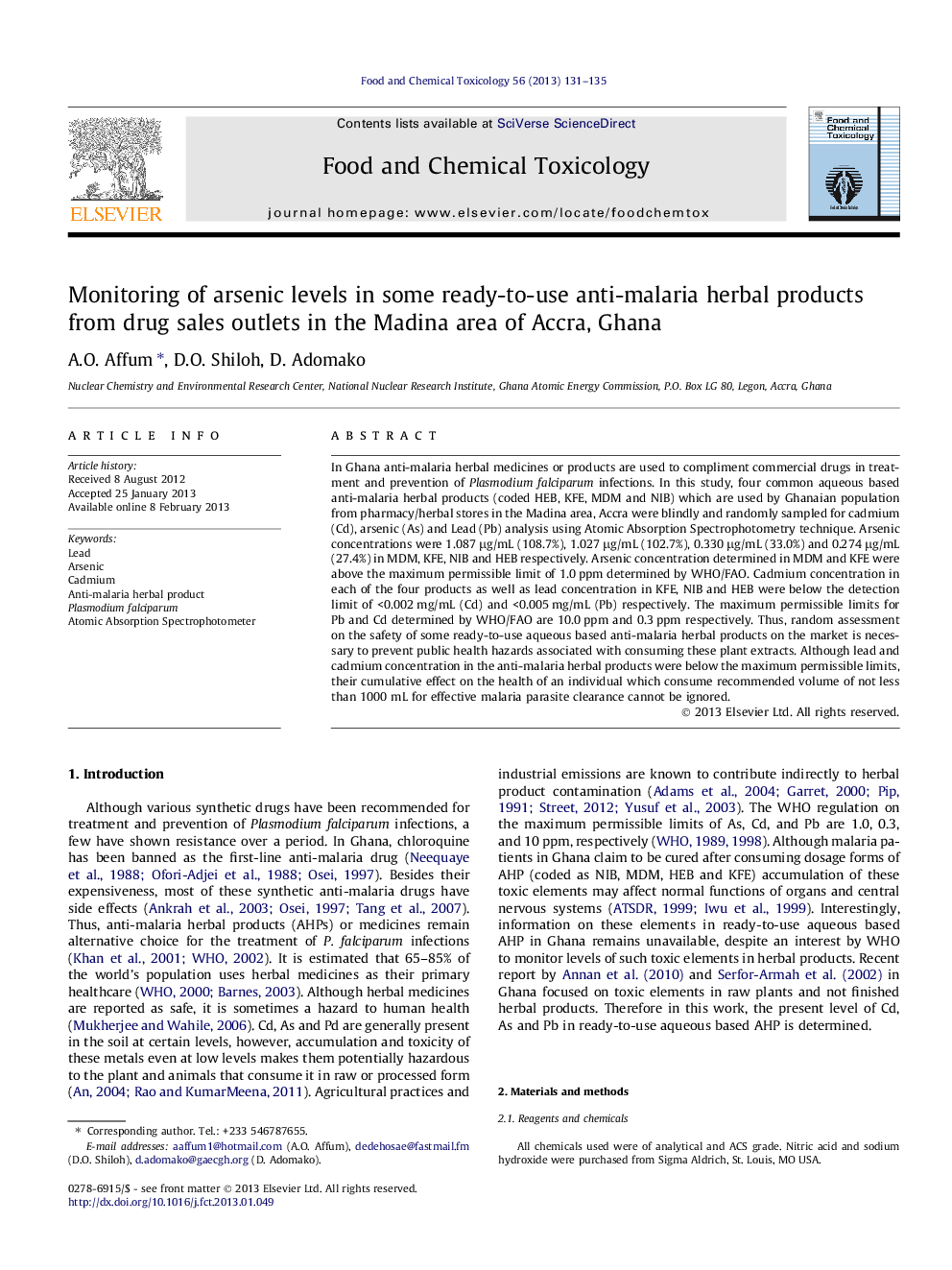| Article ID | Journal | Published Year | Pages | File Type |
|---|---|---|---|---|
| 5851195 | Food and Chemical Toxicology | 2013 | 5 Pages |
In Ghana anti-malaria herbal medicines or products are used to compliment commercial drugs in treatment and prevention of Plasmodium falciparum infections. In this study, four common aqueous based anti-malaria herbal products (coded HEB, KFE, MDM and NIB) which are used by Ghanaian population from pharmacy/herbal stores in the Madina area, Accra were blindly and randomly sampled for cadmium (Cd), arsenic (As) and Lead (Pb) analysis using Atomic Absorption Spectrophotometry technique. Arsenic concentrations were 1.087 μg/mL (108.7%), 1.027 μg/mL (102.7%), 0.330 μg/mL (33.0%) and 0.274 μg/mL (27.4%) in MDM, KFE, NIB and HEB respectively. Arsenic concentration determined in MDM and KFE were above the maximum permissible limit of 1.0 ppm determined by WHO/FAO. Cadmium concentration in each of the four products as well as lead concentration in KFE, NIB and HEB were below the detection limit of <0.002 mg/mL (Cd) and <0.005 mg/mL (Pb) respectively. The maximum permissible limits for Pb and Cd determined by WHO/FAO are 10.0 ppm and 0.3 ppm respectively. Thus, random assessment on the safety of some ready-to-use aqueous based anti-malaria herbal products on the market is necessary to prevent public health hazards associated with consuming these plant extracts. Although lead and cadmium concentration in the anti-malaria herbal products were below the maximum permissible limits, their cumulative effect on the health of an individual which consume recommended volume of not less than 1000 mL for effective malaria parasite clearance cannot be ignored.
⺠Ready-to-use aqueous based anti-malaria herbal products sold in Ghana contain risk levels of arsenic. ⺠Lead and cadmium level were below WHO maximum permissible limit of 10.0 and 0.3 ppm respectively. ⺠Lead and cadmium are not be fully extracted from plant material used in drug formulation. ⺠Contamination with metals must be determined in cultivating soil.
